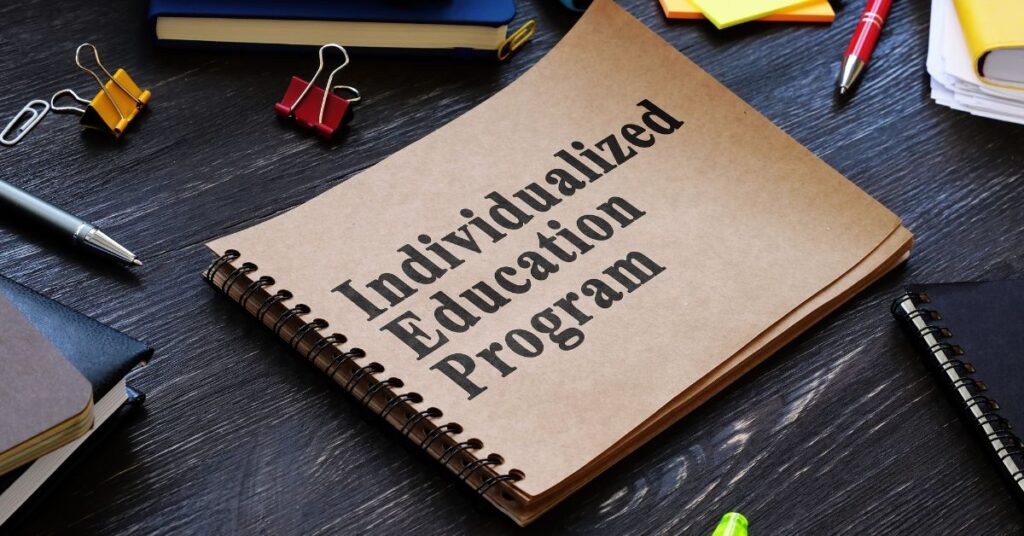Individualized education plans, or IEP, is important for your autistic child or teen. They ensure your child is receiving the services they need to make the most of their education. Yet, there are times when teachers and other school administrators do not follow your child’s plan. It may be because they don’t know what your child’s IEP includes or other reasons. So how can you ensure that the IEP developed for your autistic child is followed?
Know your rights and the laws for an IEP for your autistic child
The Individuals with Disabilities Education Act (IDEA) is the primary law that governs services through the school for children with disabilities.
The Department of Education’s website states the purpose of IDEA includes:
- “to ensure that all children with disabilities have available to them a free appropriate public education that emphasizes special education and related services designed to meet their unique needs and prepare them for further education, employment, and independent living;
- to ensure that the rights of children with disabilities and parents of such children are protected;
- to assist States, localities, educational service agencies, and Federal agencies to provide for the education of all children with disabilities;
- to assist States in the implementation of a statewide, comprehensive, coordinated, multidisciplinary, interagency system of early intervention services for infants and toddlers with disabilities and their families;
- to ensure that educators and parents have the necessary tools to improve educational results for children with disabilities by supporting system improvement activities; coordinated research and personnel preparation; coordinated technical assistance, dissemination, and support; and technology development and media services;
- to assess, and ensure the effectiveness of, efforts to educate children with disabilities.”
The Americans with Disabilities Act (ADA) is another key law that protects people with disabilities from discrimination, including protecting the rights of children. For more information, you can check out the ADA website.
At every case conference for your child, the special education representative should provide you with a document stating your child’s rights.
Understand your child’s IEP

Each year, your school’s special services team should conduct a case conference to discuss your child’s IEP for the coming year. Sometimes, the school may hold the case conferences during the first semester. This allows the them to focus on the accommodations needed for the rest of the current school year. Other times, the special education teacher will schedule it later in the school year. They discuss what’s needed for the following year. For my son J, his case conferences were usually late in the school year when he was in elementary and middle schools. When he entered high school, that changed, so his case conference has been during the first semester.
During the case conference, be sure that you are an active participant in determining which accommodations your child needs. Your child’s special education teacher will bring their recommendations, but you can add yours as well. To prepare effectively for the case conference, check out this blog post.
Make sure that before you sign your child’s IEP that you understand all the provisions and agree with the accommodations listed. Speak up if you have questions, need clarification or notice corrections that should be made.
Talk to your child to know what’s going on at school
One of the best ways to know if your child’s teachers are following the IEP accommodations is to regularly ask your child about school. You can slide in some questions that specifically ask about services. If your child is supposed to have preferential seating, where are they sitting in the classroom? Is your child supposed to have their tests read to them? You can learn a lot about what is being done simply by talking about it with your child.
When J was in the first grade, I found out that he was having recess taken away for behavior problems in the classroom. Because of his ADHD, I specifically requested that his IEP state that recess could not be taken away. With ADHD, he needs movement. Recess in elementary school was a big way to allow him to burn off that pent up energy. I reached out to the teacher, and she admitted she was not following that term of his IEP. I worked with her and the special services director to allow the teacher to keep J on the pavement only during recess for discipline. He could not to have recess taken away or made to “stand on the line” during recess. Honestly, he really just liked running around at the time (his special interest was Sonic the Hedgehog that year 😊). So, I don’t think it was effective as a discipline action anyway.
Communicate with your child’s teacher and special services regularly

Checking in with your child’s teacher regularly is a good way to keep tabs on how your child is progressing and ask about how the IEP accommodations are going. Obviously, parent-teacher conferences are a good time to do this. I found reaching out via email worked really well too.
Don’t let grievances fester
If you find out that the IEP accommodations for your autistic child are not being followed, take action immediately. Do not let your grievances fester. Set up a meeting with your child’s teacher, the special services director and principal to solve the problem as soon as it is detected. Letting the problem go on means that is more time your child is not receiving the services that are required and needed for them to do their best in school.
Bring in an IEP advocate
A special education advocate is knowledgeable about regulations and local policies and can help you understand whether your child is receiving the right assessments and accommodations from the school. The advocate can help you prepare for the discussion, attend the IEP case conference meeting with you, and help you to better understand your child’s accommodations and needs. They also can help you with asking the right questions and interpreting any assessment results.
No formal certification or licensing is available for advocates, so you need to research candidates. In addition, you most likely will pay for their services out of pocket. Read this article from Understood.org that gives some good advice if you are considering hiring a special education advocate.
Take legal action if necessary
You may need to bring in a lawyer if you do not see the school providing the special education services needed or enforcing your child’s IEP. This would be the extreme, but some parents find themselves in this situation.
The Special Needs Alliance has a good special needs lawyer directory, which can identify attorneys located near you.
Additional resources
If you want to look further into this topic, check out these additional resources.
Complete IEP Guide, The: How to Advocate for Your Special Ed Child (affiliate link)
Creating a Win-Win IEP for Students with Autism: A How-To Manual for Parents and Educators (affiliate link)
IEP Planner: Parent Planner Makes IEP Special Education Process Easier (affiliate link)
Have you found effective ways to ensure the IEP created for your autistic child is followed by the school? If so, leave a comment so that we can share and encourage each other on this journey.







